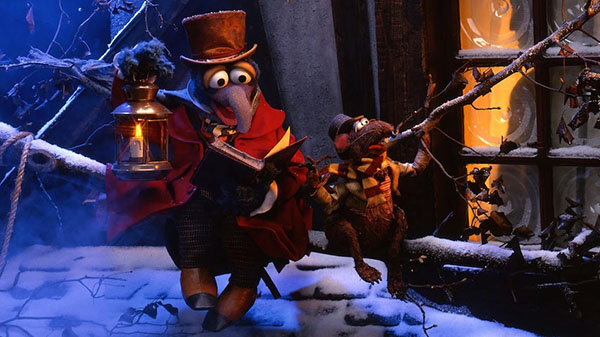On the surface, Night of the Meek and A Christmas Carol are very different. In the former, a depressed drunkard, Henry Corwin, gets to fulfill his wish of becoming Santa Claus and give out gifts to the needy. In the latter, a miserly old man learns generosity by getting visited by three ghosts of the past, present, and future. A Christmas Carol has been remade, parodied, and homaged. Everyone knows the story at this point. So why would I consider this episode of a tv show from the 60s to be the true successor when it has little to do with the beloved Christmas classic?

Both came out at very specific times in history. In Dickens’s era, the rich were getting richer, the poor were getting poorer, and Christmas was falling out of fashion. In fact, it had been banned during Cromwell’s rule about 200 years before. When Dickens wrote A Christmas Carol, he changed the way people viewed the holiday. It went from being a time of rowdy carousing to a time of charity, family, and caring for others. At least, in theory.

Rod Serling wrote his story in 1960 against the background of the Red Scare causing the government to push religion as a contrast to the godless communists and the growing consumerism of Christmas as a holiday. But in this time of rampant consumerism, people often forget the needs of others. Notably, there is a black child in the scene playing with one of the display toys, implying that his family can afford to shop there. The people around don’t react to his presence, treating him just like the white children, and he has a positive interaction with Corwin while waiting in line. When he’s fired from his job for being drunk, Corwin gives a speech grieving for all the people who are left behind on the holiday, saying “just once, I’d like to see the meek inherit the earth.” The camera pans to this child, a visual reminder of the ongoing battle for civil rights and the fact that he should be treated as an equal.

Both stories are fundamentally about the same thing: caring for the poor and the ones ignored by society. The difference is in the main characters. Scrooge, as everyone knows, is miserly and cold, caring about nothing but money. He needs the three ghosts to show him the error of his ways before Tiny Tim dies a preventable death. Corwin, by contrast, seems to care too much. At least, according to the rest of the world. He is drunk and depressed not because he’s lonely—he seems rather beloved by his fellow homeless and unemployed men—but because he wishes that he had the power to help others and bring some joy into their lives. Corwin understands the lessons that Scrooge learned the hard way. It’s the rest of the world that doesn’t seem to get it.

People mock Corwin for his generosity and desire to help others, treating him like a delusional drunk. They celebrate Christmas as a commercial holiday, but ignore the suffering all around them in a similar manner to Scrooge. Corwin’s boss, Mr. Dundee; the police officer, Flaherty; and the proprietress of the mission house, Sister Florence, all represent figures of authority who, instead of trying to embody the holiday’s spirit of generosity, act in a way that keeps the social classes separate. They aren’t bad people. They’re just doing their jobs, but Corwin and his generosity challenge their understanding of reality and what it means to be a valuable person in society.

And Corwin gets what he wants. He gets to spend every Christmas as the “greatest gift giver of all.” When his bag is empty, he discovers an elf and a sleigh and rides off with them to prepare for next year, keeping the Christmas spirit year-round.

And so, in this time of giving, I encourage you to love one another generously like Corwin, with no spirits of past, present, and future necessary. I’ll leave you with the words of the immortal Rod Serling:
A word to the wise to all the children of the twentieth century, whether their concern be pediatrics or geriatrics, whether they crawl on hands and knees and wear diapers or walk with a cane and comb their beards. There’s a wondrous magic to Christmas and there’s a special power reserved for little people. In short, there’s nothing mightier than the meek. And a Merry Christmas to each and all.
